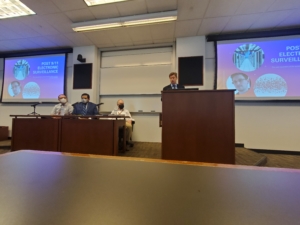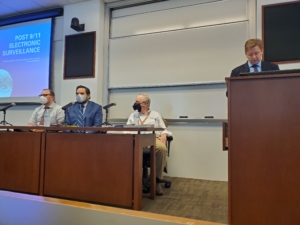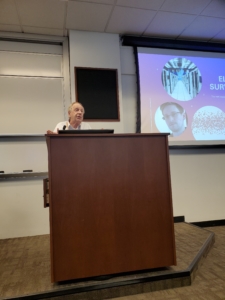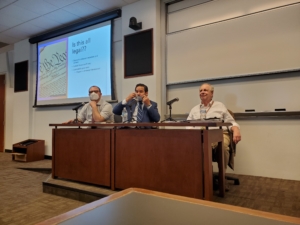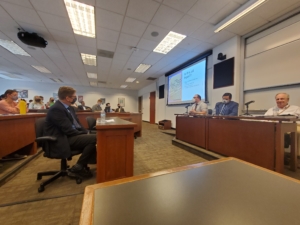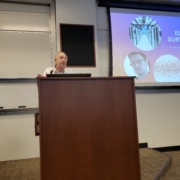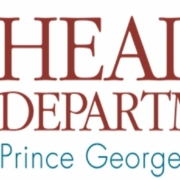As states begin their phased reopening across the country, the legal and policy decisions made by health officials and governors are bearing full fruit or consequences. Some states, such as Florida and Georgia, which resisted state closures and led reopening, are now facing choices similar to those faced a month ago, but with much higher stakes, as cases of Covid-19 rise and threaten to overwhelm healthcare systems.
The state of Maryland, which was one of the earlier states to see cases rise, has led by example. With Governor Hogan at the helm of a substantial team of medical and public health experts, closures in the state of Maryland were carefully timed, well-communicated, and followed the best medical and scientific knowledge available for a novel virus. Maryland citizens, for the most part, were exemplary in their willingness to engage in measures to make themselves, their family, their neighbors, and their community safe. This is the bright spot in this pandemic; Maryland and its residents have risen to the challenge of this pandemic, and each day there are more stories of everyday acts of heroism.
Where Maryland has mirrored the country at large, however, is one of the dark spots in the pandemic: the disproportionate effect Covid-19 has had on residents at long term care facilities (LTCFs). According to CMS data, as of June 14th, over 40% of the approximately 115,000 Covid-19 related deaths in the US have occurred at LTCFs. Some of these deaths captured national headlines, such as outbreak at Life Care Center, in Kirkland, Washington, where 37 residents died, and dozens more residents and staff were sickened or exposed.
This story has played out across the country, and within Maryland’s borders as well. As of mid-June, nearly 60% of deaths in Maryland were at nursing home facilities. Sadly, this is not the first time nursing home deaths have made headlines: starting with the tragic consequences of Hurricane Katrina in 2005, the need for better emergency preparedness and planning in LTCFs has been a part of the national emergency preparedness discussion. In fact, in 2016, the Centers for Medicare and Medicaid announced a Final Rule for Emergency Preparedness Requirements, a sweeping, federal implementation of emergency preparedness requirements.
The rule, which requires LTCFs to have emergency plans, communication plans, and twice-yearly testing and exercises, had the ability to create a much-needed, federal-level culture shift within the LTCF industry. Unfortunately, its implementation was hampered by a new administration that announced almost immediately it would work to roll-back provisions of the rule, and approached enforcement in a lackadaisical manner. More fatally, the CMS EP rule, while quite thorough in its requirements, was not coupled with any federal grant funding to help facilities meet the new requirements—many of which, such as functional or full-scale exercises—can far exceed the cost estimates CMS provided.
As we have seen in other facets of the US, changing a culture, whether in a workplace or elsewhere, takes time, effort, education, and, importantly, funding. Nursing homes throughout the country are filled with workers who are trying to do the right thing, while constantly being asked to do more with less—less money, less time, less staff. During Covid, the workers in LTCFs have become surrogate family to residents who can no longer see their own families because of visitation restrictions; these workers have coordinated video calls for families, updated caregivers on the residents’ status, and sat beside patients, reading books to those who are ill, and holding the hands of those who are dying. What LTCFs lack is a well-funded, systemic push to make emergency preparedness an integrated part of the work culture, as natural to LTCF workers as compassion is.
During this pandemic, Maryland has led the country as a state responding to a public health emergency in a measured way, as it has done so many times before. During the West African Ebola outbreak in 2014, Maryland introduced science-based quarantine and isolation policies that protected public health while safe-guarding civil liberties. Where Maryland has learned hard lessons it has made changes to safeguard residents from future harm, such as requiring backup power for dialysis centers after residents were left without access to life-saving services.
Now, Maryland should pool its strength as a healthcare and public health leader to lead the nation’s change in culture for LTCF emergency preparedness. Working with LTCFs to review infectious disease protocols, ensure case reporting, and distributing testing kits—as Maryland has now done—is critical. But Covid-19 will end, and one of its enduring legacies should be that it brought about a revolution in LTCF’s emergency preparedness, creating a nation-wide culture of safety for medically-vulnerable residents and staff no matter what the threat. Meaningful implementation of the CMS Rule can help create that culture of safety, and ensure that whatever the next emergency is, Maryland’s LTCFs are ready.
